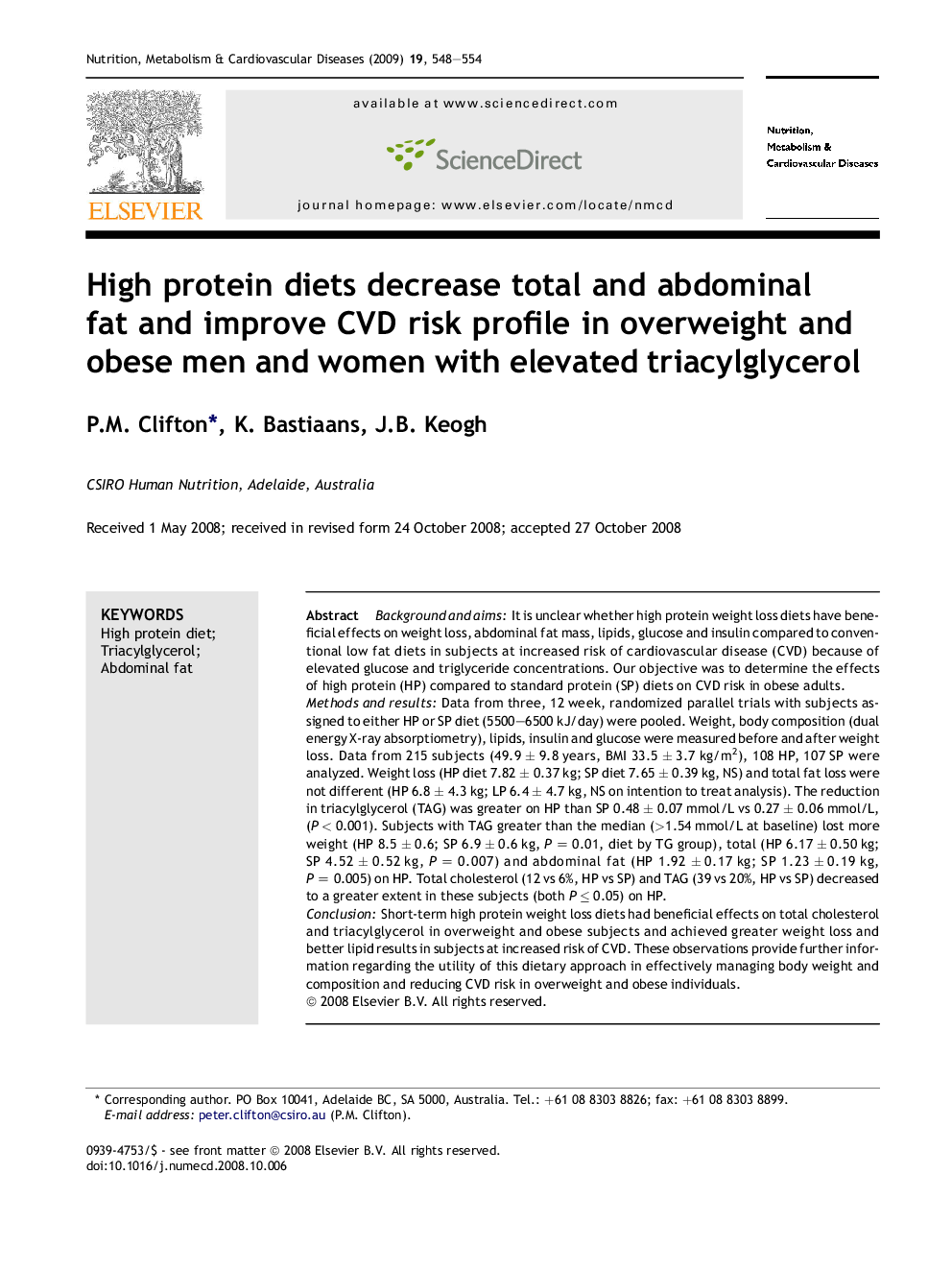| Article ID | Journal | Published Year | Pages | File Type |
|---|---|---|---|---|
| 3002890 | Nutrition, Metabolism and Cardiovascular Diseases | 2009 | 7 Pages |
Background and aimsIt is unclear whether high protein weight loss diets have beneficial effects on weight loss, abdominal fat mass, lipids, glucose and insulin compared to conventional low fat diets in subjects at increased risk of cardiovascular disease (CVD) because of elevated glucose and triglyceride concentrations. Our objective was to determine the effects of high protein (HP) compared to standard protein (SP) diets on CVD risk in obese adults.Methods and resultsData from three, 12 week, randomized parallel trials with subjects assigned to either HP or SP diet (5500–6500 kJ/day) were pooled. Weight, body composition (dual energy X-ray absorptiometry), lipids, insulin and glucose were measured before and after weight loss. Data from 215 subjects (49.9 ± 9.8 years, BMI 33.5 ± 3.7 kg/m2), 108 HP, 107 SP were analyzed. Weight loss (HP diet 7.82 ± 0.37 kg; SP diet 7.65 ± 0.39 kg, NS) and total fat loss were not different (HP 6.8 ± 4.3 kg; LP 6.4 ± 4.7 kg, NS on intention to treat analysis). The reduction in triacylglycerol (TAG) was greater on HP than SP 0.48 ± 0.07 mmol/L vs 0.27 ± 0.06 mmol/L, (P < 0.001). Subjects with TAG greater than the median (>1.54 mmol/L at baseline) lost more weight (HP 8.5 ± 0.6; SP 6.9 ± 0.6 kg, P = 0.01, diet by TG group), total (HP 6.17 ± 0.50 kg; SP 4.52 ± 0.52 kg, P = 0.007) and abdominal fat (HP 1.92 ± 0.17 kg; SP 1.23 ± 0.19 kg, P = 0.005) on HP. Total cholesterol (12 vs 6%, HP vs SP) and TAG (39 vs 20%, HP vs SP) decreased to a greater extent in these subjects (both P ≤ 0.05) on HP.ConclusionShort-term high protein weight loss diets had beneficial effects on total cholesterol and triacylglycerol in overweight and obese subjects and achieved greater weight loss and better lipid results in subjects at increased risk of CVD. These observations provide further information regarding the utility of this dietary approach in effectively managing body weight and composition and reducing CVD risk in overweight and obese individuals.
